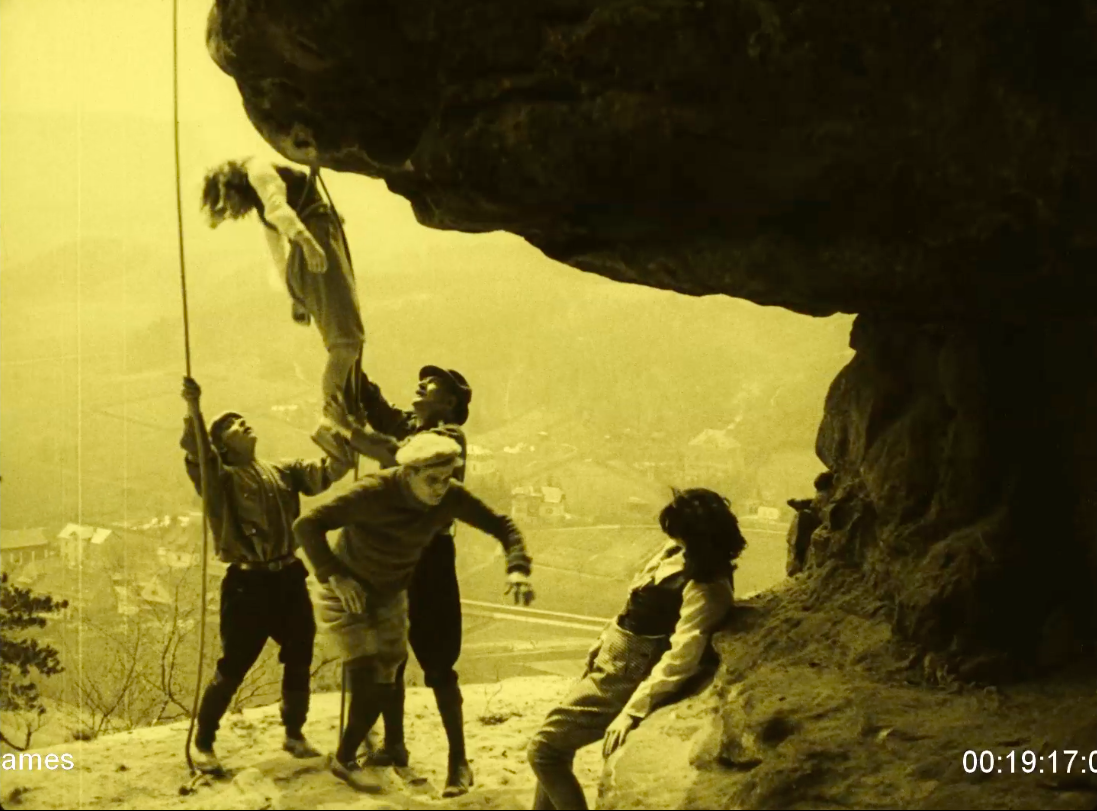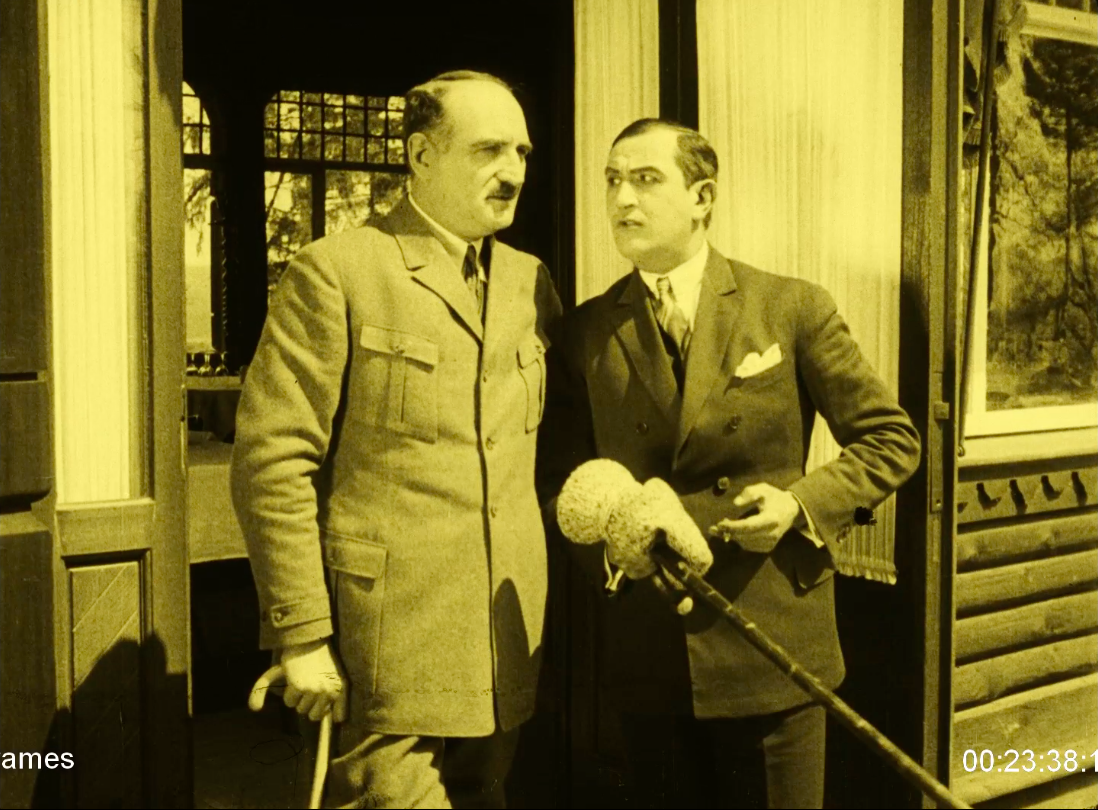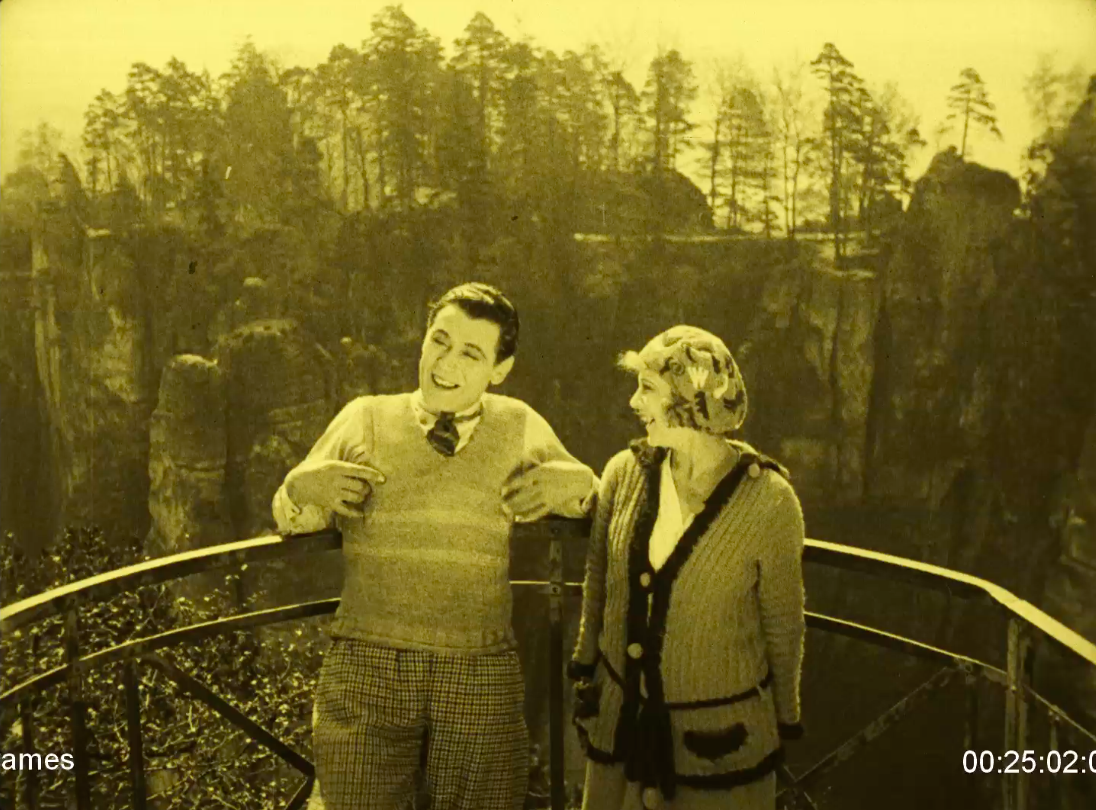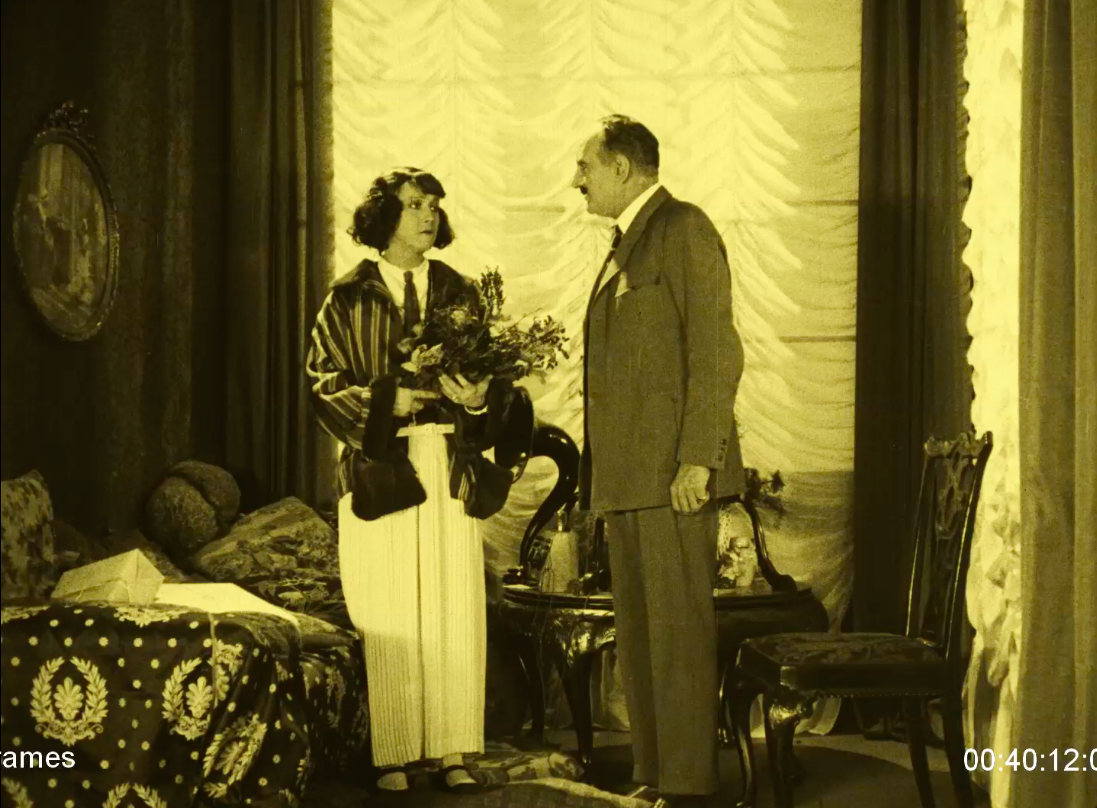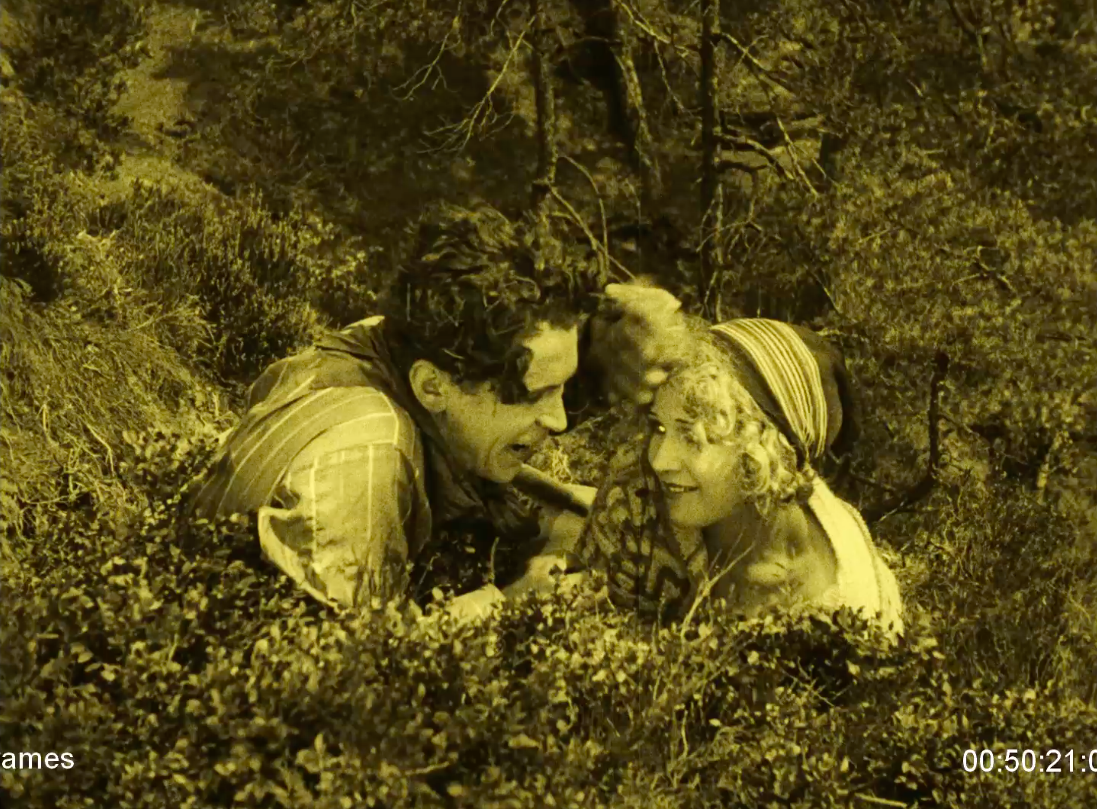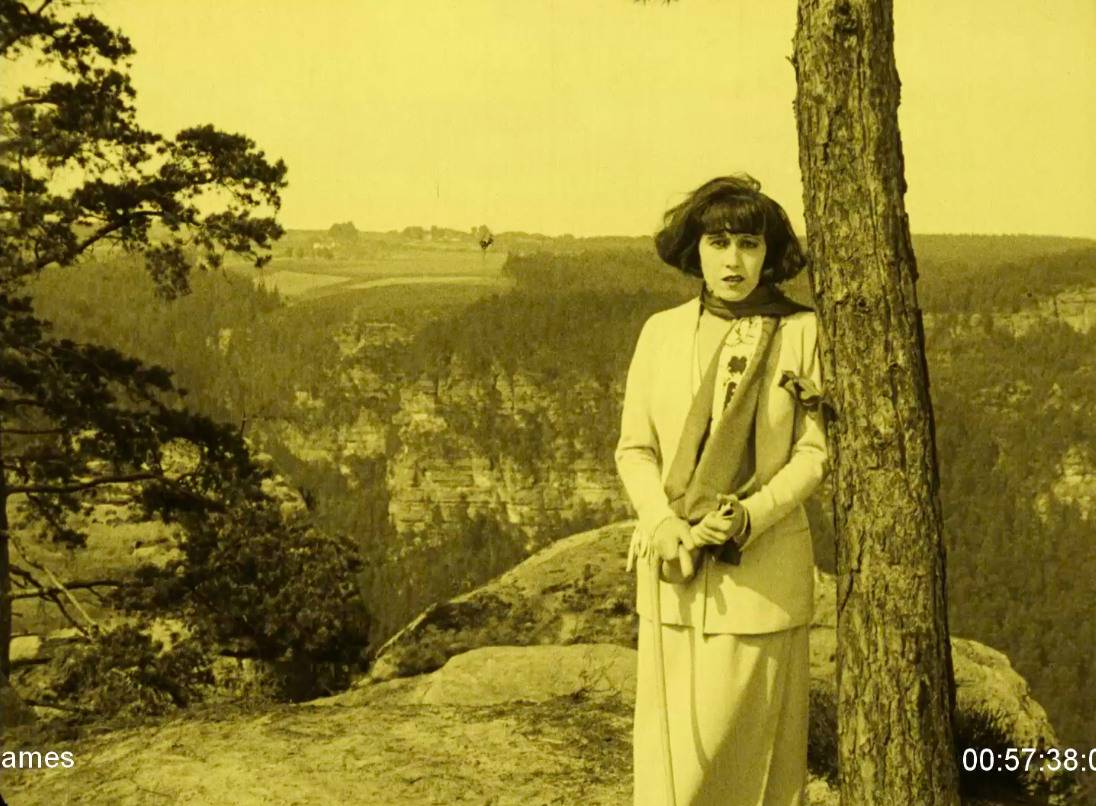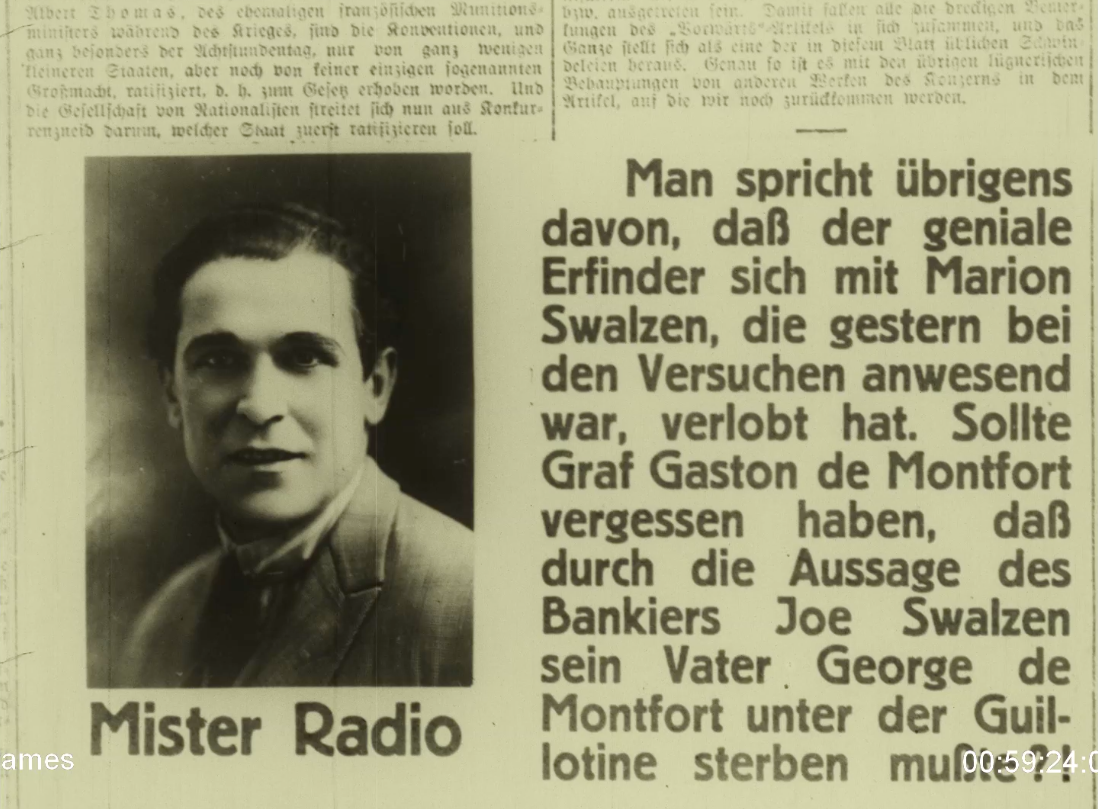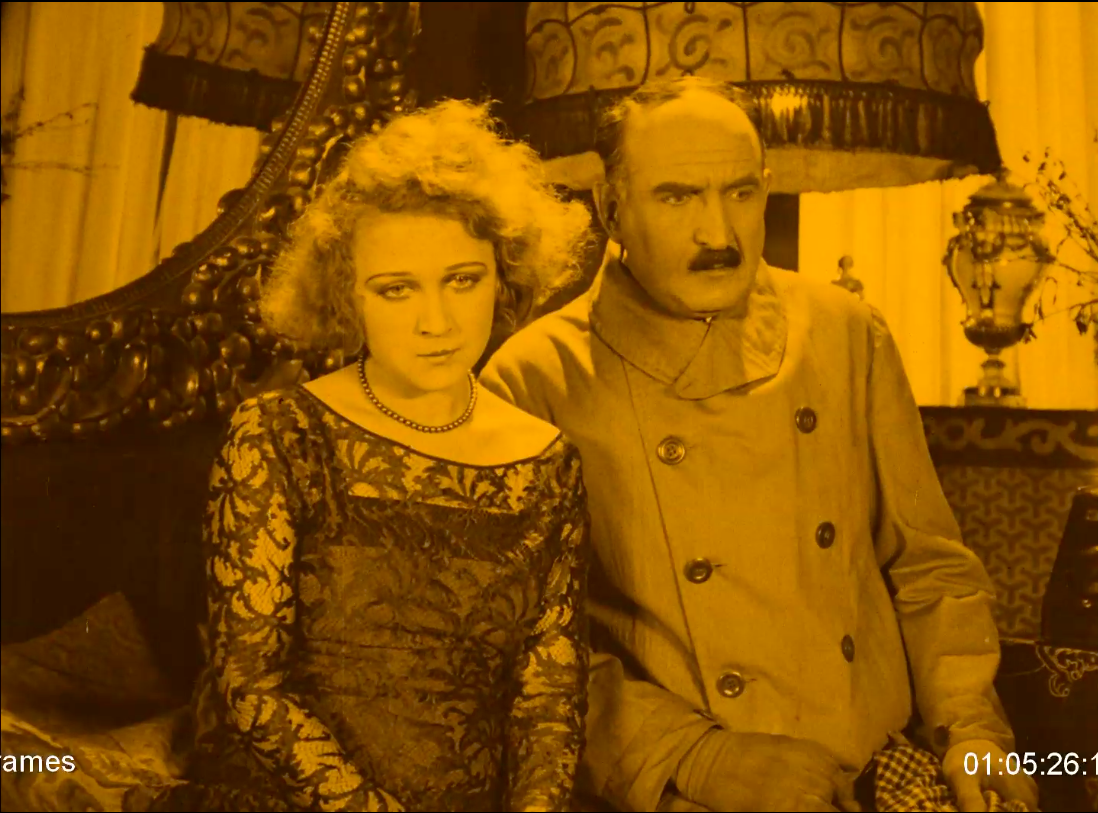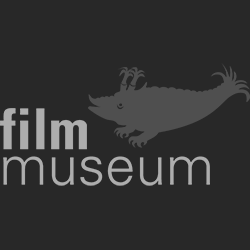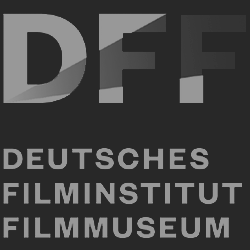Mister Radio
Mister Radio
Germany 1924, 78 min. | HD-s/w (virague)-restored version
Mister Radio was directed by Nunzio Malasomma in 1924, with sensational film star Luciano Albertini in the leading role. For Malasomma it was the first directorial work in Germany after his emigration from Italy. For Albertini it was the first shoot after a detour to the USA, to Universal Pictures.
The outdoor shooting of the sensational film, produced by Phoebus Film A.G., took place on locations in the Elbe Sandstone Mountains near Rathen, in the spring of 1924. The premiere took place on 5 September 1924 on the occasion of the new opening of the Bafag Theatre on the Ku'damm in Berlin.
Young Gaston de Montfort, known as 'Mr. Radio', is working on a crazy invention in his laboratory in Saxon Switzerland, with which he wants to prevent trains from colliding. Mr. Radio' is also an accomplished mountain sportsman, and so it happens that one day he rescues a group of tourists in distress during their daring climbing tour. He promptly falls in love with Marion, the daughter of banker Swalzen. But Marion's socialite Edy also has her eye on the athletic inventor. She wants to help him finance his work and asks banker Swalzen, who in turn adores Edy, for money. The big day arrives when 'Mr. Radio' successfully demonstrates his invention in an experiment with two locomotives; nothing stands in the way of a wedding with Marion. Shortly afterwards, however, the criminal machinations of banker Swalzen, who defrauded Gaston's father and had him murdered, are revealed. A breakneck showdown over rooftops and cliffs begins, until the tangled erotic relationships are finally clarified and Edy is finally allowed to kiss the attractive Gaston. The leading role is played by the sensational actor Luciano Albertini, popular in his time, who can also be seen here in spectacular climbing scenes.
On 7 August 1924, the Film-Prüfstelle Berlin granted approval to the film with a length of 1,902 m, restricted by "youth ban". The only surviving copy of MISTER RADIO is a contemporary cinema print from Austrian film distribution. It has been preserved in the Austrian Film Museum in Vienna since 1983, part of a collection of film prints from the distributor "Waldmüllers Alpenländische Filmzentrale, Innsbruck". The nitrocellulose original is viragraphed, largely complete and in a good state of preservation, presumably in its original cutting order.
The 1.699 m long film copy contains 98 intertitles, mostly in original layout. They correspond in wording and sequence to the German registration card preserved in the Federal Archives. The main title, a pre-title and 5 intertitles are missing. Likewise, 9 of the 10 titles at the beginning and end of the file are no longer original, but have been replaced by titles from other copies.
Commissioned by ZDF in collaboration with Arte, composer Bernd Thewes from Mainz is writing a new film score (no original music has survived) for orchestra and jazz combo. He has been working with silent film music for a long time and has reconstructed key works of classical film music.
The recording will take place in September 2021 in cooperation with the MDR Symphony Orchestra. The conductor is Frank Strobel.
Mister Radio
Film music for orchestra and jazz combo by Bernd Thewes (2021)
Instrumentation:
2(2. also Pic.).2(2. also Engl.Hn).2(1 also ASax, 2. also BCla).2(2. also CBsn) - 3 .2(2nd also Flhn).2.1 - 1 Pk, 1 Drum set (BD, SD, 3Tom, HiHat, 2Cymbals, Cowbells etc.), 2 percussion, 1 stage piano (88 keys, Samplesounds: E.Bass-Hammond Organ), 1 harp - strings (8.6.4.3.2)
Der Komponist Bernd Thewes
Bernd Thewes (*1957) studied school music in Saarbrücken and musicology in Mainz. His oeuvre includes compositions for solo and orchestral ensembles, radiophonic projects, opera, sound installations and film music. He works with leading soloists of New Music such as Dirk Rothbrust, Dietmar Wiesner or Irmela Roelcke. For the ARTE silent film programme he realised several new compositions (for films by Hans Richter and Carl Th. Dreyer) as well as arrangements of historical film music, which have set a new international standard in the orchestration and arrangement of original historical music: Der Rosenkavalier by Richard Strauss (1926), Sprengbagger 1010 (1929) by Schönberg's student Walter Gronostay, Berlin, Sinfonie der Großstadt (1927) and Oktober (1928) by Edmund Meisel, and Der Student von Prag (1913) by Josef Weiss. With the reconstruction of the premiere music of the Abel Gance film La Roue (F 1923), Bernd Thewes has reconstructed the longest film music in silent film history: 7 hours of music, which received international acclaim in a German-French double premiere in Berlin and Lyon in 2019.
Born in Caserta, Italy, in 1894, his journalistic training led him to found the film and theatre magazine "Fortunio". Thus, in the early 1920s, he first came to film as a scriptwriter. In 1923, with Mussolini's seizure of power, Malasomma left his home country to continue writing screenplays in Germany. He worked in German-Italian production teams alongside personalities such as the Italian director Gennaro Righelli and the German actor Heinrich George. From 1924 onwards he directed a series of sensation and action films in which he cast the leading roles mainly with Italian stars and above all with Luciano Albertini. Not least because of his experience as a sensation and action director, Malasomma seemed predestined to direct the high mountain drama "Der Kampf ums Matterhorn" (1928; together with his compatriot Mario Bonnard) until he returned to Italy with the advent of the talkies. However, Malasomma remained faithful to German-Italian filmmaking. In 1941 he shot VOM SCHICKSAL VERWEHT, his last film in Germany. He was still active in Italy until the end of the 1960s, directing sandal films and Italo westerns.
Born Francesco Vespignani in Lugo di Romagna in 1882, the athletic Albertini was first a circus performer and sports teacher. He remained loyal to the circus world for a long time: Together with his wife Domenica Meirone, he founded the trapeze act "les Albertini" in France. With the beginning of World War I, Albertini returned to Italy to play the character of the "Muscle Man" in circus and historical films, quickly gaining popularity. In 1918 he founded "Albertini film", his own production company, where he became the face of adventure films alongside his circus colleagues. Accompanied by them, Albertini goes to Germany in the early 1920s, where he again succeeds in establishing himself with his own production company. Due to their athletic talent, Albertini and his companions become the most sought-after faces of the German sensation film. Under the direction of Joseph Delmont, Albertini provided spectacular stunts in films such as THE KING OF THE MANEGE, THE IRON FAUST, THE DEADLY LEADERS, THE MAN OF STEEL or JULOT, THE APACHE. Edoardo Lamberti often stood behind the camera when Albertini swung in front of it. After his intermezzo in Hollywood, Albertini worked mainly with Nunzio Malasomma in Germany. The two were linked by a long collaboration, from which MISTER RADIO also stems. Albertini's career did not survive the transition to talkies. In the mid-1930s, he returned to his home country with psychological problems, where he died in a mental hospital in 1945.
Credits
- Direction:
Nunzio Malasomma - Screenplay:
Ernest Bouthley, Nunzio Malasomma - Camera:
Willy Großstück, Eduardo Lamberti - Actors:
Luciano Albertini (Gaston de Montfort), Evi Eva (Marion), Magnus Stifter (Joe Swalzen, banker, her father), Fred Immler (Girondin, his sectretary), Agnes Nero (Comtesse Jeanne de Montgort, Gastons mother), Annie Gorilowa (Edy Duflos) u.v.a. - Film restoration (2021):
DFF - Deutsches Filminstitut & Filmmuseum, Österreichisches Filmmuseum - Score music (2021):
Bernd Thewes (Commissioned by ZDF in collaboration with Arte) - Editorial:
Nina Goslar, ZDF - Production:
Thomas Schmölz, 2eleven music film

